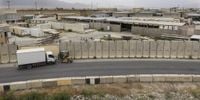On September 18, 2025, former President Donald Trump stunned the international community by announcing that the United States is actively seeking to reclaim Bagram Air Base from the Taliban, just four years after its controversial abandonment during the chaotic withdrawal from Afghanistan. The announcement, made alongside UK Prime Minister Keir Starmer during a joint press conference in London, signals a dramatic potential shift in American foreign policy and has already sparked a flurry of diplomatic reactions and strategic calculations across the globe.
Bagram Air Base, once the largest U.S. military installation in Afghanistan and a central hub for American operations for nearly two decades, was vacated by U.S. forces in July 2021. The withdrawal, ordered by then-President Joe Biden, marked the end of America’s longest war but quickly led to the Taliban’s takeover of both Kabul and Bagram. Trump has repeatedly criticized the decision, stating during the press conference, “We’re trying to get it back, by the way. That could be a little breaking news: We’re trying to get it back, because they need things from us.” According to BBC News, he further explained, “One of the reasons we want the base is, as you know, it’s an hour away from where China makes its nuclear weapons.”
The former president’s remarks explicitly linked the push for Bagram to countering China’s growing influence in the region. Reuters reported that Trump described the base as “one of the world’s largest air bases,” with runways capable of handling virtually any aircraft—a not-so-subtle nod to its enduring strategic value. He emphasized that its proximity to Chinese nuclear facilities makes it a critical asset for U.S. intelligence and military operations, especially as global power dynamics continue to shift.
While Trump’s announcement came as a surprise to many, it is not entirely without precedent. The terms for the U.S. withdrawal from Afghanistan were initially set during Trump’s first term, though the execution fell to his successor. Since then, Trump has repeatedly decried what he calls the “giving away” of Bagram to the Taliban “for nothing.” According to Nexstar Media, he has also alleged—without substantiation—that China’s People’s Liberation Army took control of the base after the U.S. withdrawal, an assertion both Beijing and the Taliban have denied.
Despite the boldness of Trump’s declaration, the path to retaking Bagram is riddled with uncertainty and diplomatic hurdles. As of September 19, 2025, no formal plans or confirmed negotiations have been announced by other U.S. officials regarding the reclamation of the base. The Taliban’s public response was swift and unequivocal. Zakir Jalal, a senior official in the Taliban’s interim government, posted on X (formerly Twitter): “Afghanistan and America need to engage with each other and can have economic and political relations based on mutual respect and common benefits, without America having military presence in any part of Afghanistan.” Jalal’s statement, reported by The Economic Times, makes clear that the Taliban “completely rejects” the idea of a renewed U.S. military footprint on Afghan soil.
Nevertheless, behind the scenes, a more nuanced diplomatic dance appears to be underway. According to The Wall Street Journal, Trump administration officials—led by special envoy for hostage response Adam Boehler—are engaged in discussions with the Taliban about the possibility of re-establishing a small U.S. military presence at Bagram for counterterrorism operations. These talks reportedly form part of a broader diplomatic effort to normalize relations with the Taliban and include discussions of potential prisoner exchanges and economic deals. U.S. special envoy Adam Boehler and former envoy Zalmay Khalilzad have even met with the Taliban’s foreign minister, Amir Khan Muttaqi, to address the fate of Americans currently held in Afghanistan.
The Taliban, for its part, has signaled a willingness to engage with the U.S.—but strictly on terms that exclude any future military presence. Jalal underscored the point: “The U.S. and Afghanistan can have economic and political relations based on mutual respect and shared interests, but the U.S. will not be allowed to have a military presence in the country.” Another Taliban official, Muhajir Farahi, offered a poetic rebuke on social media, suggesting that the U.S. had not yet “found peace” after its long and costly engagement in Afghanistan.
China, too, has entered the fray, albeit with a more measured tone. Lin, a spokesperson for China’s foreign ministry, stated, “Let me stress that stirring up tension and confrontation in the region will not be supported... We hope all parties will play a constructive role for regional peace and stability.” Since the Taliban’s return to power, China has moved quickly to establish diplomatic ties and invest in Afghanistan’s mining and oil sectors, further complicating the strategic calculus for Washington.
Trump’s push to regain Bagram comes at a time of heightened global anxiety about the resurgence of great power competition. The former president’s focus on the base’s proximity to Chinese nuclear facilities underscores the degree to which U.S. strategic priorities have shifted from counterinsurgency to countering peer rivals. The move also highlights ongoing concerns over the security vacuum left by the U.S. withdrawal, which saw 13 American service members killed in a suicide bombing at Kabul airport—a tragedy Trump has frequently cited as evidence of the withdrawal’s disastrous consequences.
Bagram itself has a storied and tumultuous history. Built by the Soviet Union in the 1950s, it became the linchpin of U.S. operations in Afghanistan after 2001, supporting tens of thousands of troops and serving as a launchpad for both combat and humanitarian missions. Its extensive infrastructure remains largely intact, making it a highly coveted asset for any power seeking to project influence in Central Asia.
For now, the fate of Bagram remains uncertain. The Taliban’s rejection of a renewed U.S. military presence appears unequivocal, but the ongoing diplomatic contacts suggest that all options remain on the table. The coming weeks and months will likely determine whether Trump’s bold gambit marks the beginning of a new chapter in U.S.-Afghan relations—or simply another twist in the region’s long and troubled history.
The world will be watching closely as Washington, Kabul, and Beijing maneuver for advantage around one of the most strategically significant pieces of real estate in modern geopolitics.


